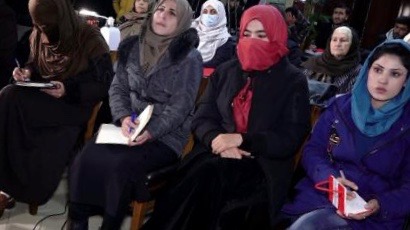From January 23-25, a Taliban delegation was in Oslo to hold a series of meetings with rights organizations and western diplomats. This was the first trip to Europe by a Taliban team since they took over Afghanistan in 2021. The discussions over the three days took place amid a mounting economic crisis in the country which has seen millions suffering from hunger and descending into poverty. The issue of the rights of women figured prominently in the agenda although the situation on the ground in Afghanistan indicates very little advance on that front.
For the Taliban, the primary objectives in Oslo were legitimacy and financial assistance. While no country has recognized its government so far, the Taliban do see the invitation to take part in talks in Oslo as a boost to their efforts. Taliban foreign minister Amir Khan Muttaqi said after the talks that “Norway providing us this opportunity is an achievement in itself because we shared the stage with the world.”
Meanwhile, for the western powers, especially the United States, the talks are believed to serve as a precursor for further engagement with the Taliban. Observers have pointed out that the US is keen to neutralize any advantage China or Iran may have in the region following its withdrawal. The United States holds a bargaining chip in the form of close of USD 10 billion in Afghan assets that were frozen after the Taliban’s takeover. On Wednesday, January 26, addressing the UN Security Council, secretary general António Guterres urged countries to suspend rules and conditions that constrict both the Afghan economy and lifesaving humanitarian operations, according to the UN.
Guterres also once again emphasized the need for the Taliban to uphold the rights of women and children. In fact, the first day of the talks saw the Taliban delegation meet various rights organizations, including women’s groups. Women’s rights activist Jamila Afghani, who attended these talks, told AFP that it was a “positive ice-breaking meeting” and said the Taliban displayed good will. The Taliban has also announced that all girl students will be able to return to schools by the end of March.
However, the various commitments and promises the Taliban are a far cry from the situation on the ground where women have been protesting demanding their rights and are also facing persecution for the same. According to media reports, on January 19, two women activists, Tamana Zaryab Paryani and Parwana Ibrahimkhel, were reportedly abducted from their homes, along with three of Paryani’s sisters. They were among the 25-odd women who participated in a protest on January 16, demanding the right to education and work, as well as expressing concerns about having to wear the hijab. The protesters on January 16 were attacked with electric devices and pepper spray. They had also been demanding the release of prison official Alia Azizi who has been missing since reporting for work on October 2, 2021.
Shortly before the news of their disappearance was reported, a video uploaded on Twitter via the handle of Aamaj News became viral where Paryani can be seen in visible distress calling out for help with women screaming in the background.
https://twitter.com/aamajnews24/status/1483830037015109641
23-year-old Parwana Ibrahimkhel and her brother-in-law, were arrested after a former government employee invited them for a visit, another activist told Rukhshana Media, a local online news agency.
During the talks in Oslo, Afghan activist Hoda Khamosh asked Taliban foreign minister Muttaqi to “pick up his phone now and call Kabul [and] order the immediate release” of the detained women. The latter reportedly responded that certain “bad elements” among the Taliban may have been responsible for the arrests, and said that the situation was being investigated.
However, earlier, in an interview to the BBC, Taliban spokesperson Suhail Shaheen called the incident “fake” and that it was “staged to seek asylum abroad.”
UN Secretary General Guterres has also called for the release of the women activists.
The January 16 protest was just one of many such protests by a variety of organizations on similar issues. On January 17, for instance, several women gathered to demand the reopening the Ministry of Women’s Affairs. After the Taliban’s takeover, the ministry was shut down while a new Ministry for the Propagation of Virtue and Prevention of Vice was set up in the same building.
On January 11, another protest was held in Kabul by Afghan women in response to posters put up by the new ministry emphasizing the importance of hijab for women. Despite such protests, there have been no signs of the Taliban accepting their demands or engaging them.
In light of these developments, while their rights figured as a key discussion point in Oslo, it is doubtful whether the women of Afghanistan will benefit from any substantial change.





